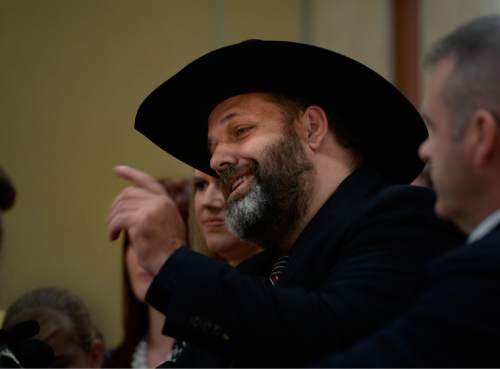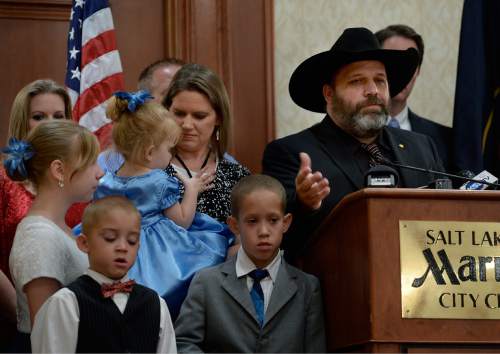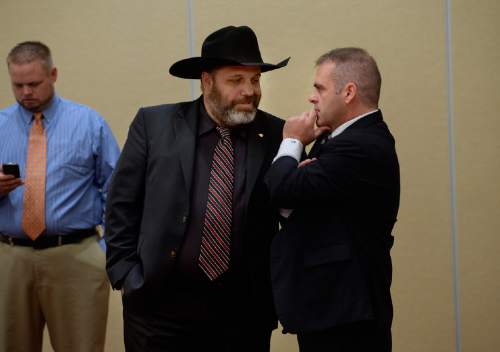This is an archived article that was published on sltrib.com in 2016, and information in the article may be outdated. It is provided only for personal research purposes and may not be reprinted.
A federal appeals court has breathed new life into the criminal case against former Utah County real estate investment guru Rick Koerber, who had been accused of operating a $100 million Ponzi scheme.
But the decision issued Thursday allows a federal judge in Utah who dismissed the case to rule the same as before if he corrects some deficiencies cited by a panel of justices at the 10th U.S. Circuit Court of Appeals.
The decision sends the case back to U.S. District Judge Clark Waddoups for reconsideration of his order that dismissed the charges with prejudice, meaning they could not be refiled.
Waddoups ruled in August 2014 that the government had contributed significantly to violations of the Speedy Trial Act, which requires trials within certain time limits but allows for delays for specific reasons. He found that prosecutors from the U.S. attorney's office had shown a pattern of delay and neglect. The judge also cited "questionable ethical conduct."
Waddoups was within legal bounds in citing misconduct over agents interviewing Koerber without a lawyer present, violating attorney-client privacy standards, delaying producing evidence and shunning requests for information about the basis for the charges after Waddoups barred the use of certain evidence, the 10th Circuit said.
"The district court did not abuse its discretion in considering these facts," the court said.
Koerber said that, despite the latest ruling, the "10th Circuit agreed 'the government intentionally intruded on [my] constitutional rights ... to secure an indictment in the first instance."
"Prosecutors subsequently engaged in unfair and intolerable 'tactical-delay,' Koerber said in an emailed statement relayed by his attorney. "And thus, on remand, this 'cannot be ignored' and Judge Waddoups retains discretion" to toss out the case with prejudice.
"As I said in the beginning," he added, "I am innocent of these false and absurd charges."
Koerber's lawyer, Marcus Mumford, said the ruling was "technical" and "did not disturb the core of Judge Waddoups' ruling."
"The record revealed what they acknowledged was a 'sordid history,' with 'baffling incompetence' and a 'pattern of neglect and dilatory conduct' on the part of prosecutors in their prosecution of Mr. Koerber," Mumford said in a written statement. "The appellate court agreed that the government 'mishandled' the case and that we had showed how Koerber was prejudiced by the government's actions."
The U.S. attorney's office for Utah said prosecutors were reviewing the ruling.
"Because it is still a pending matter, we cannot comment," said spokeswoman Melodie Rydalch.
The decision said Waddoups erred in considering unrelated events when deciding whether the case should be dismissed with or without prejudice and also failed to fully consider how much Koerber himself had contributed to the delays.
A federal grand jury first indicted Koerber in May 2009, then accused him in two subsequent indictments of using money from new investors to pay returns owned to others, in what is known as a Ponzi scheme, and also using investor monies to buy cars and restaurants and to mint coins and make a movie.
His companies failed in 2008, leaving investors out of about $48 million.







